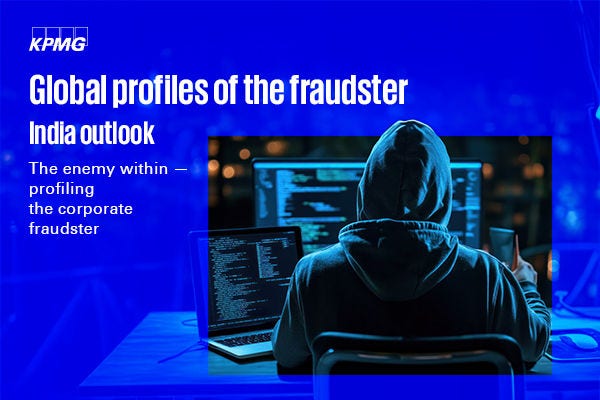Business environment today is complex, and so is the fraud landscape. Fraudsters have become more digital and sophisticated, putting organisations under pressure to strengthen their detection capabilities beyond conventional controls. Typically, a fraudster is not someone outside your gates, it is, rather, someone within your trust circle. According to KPMG in India’s Global Profiles of the Fraudster, a typical fraudster is a male and has served his/her organisation for more than six years. So, the question that remains at the forefront is-who is the enemy within and what are his/her methods?
To understand and uncover the profile of the fraudster, KPMG in India conducted a wide-ranging global survey, revealing insights from 669 real-world cases. The survey throws light on the nature of frauds and fraudsters, system vulnerabilities and cyber frauds. Both India and global editions of the report suggest that weak controls are the prime reason for frauds.
Through this survey, we intend to assist organisations to prevent, detect and respond to fraud, making it more difficult to commit. This will enable our clients to understand the complex field of fraud and how it is likely to change in the future.








